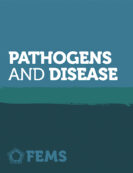Projects
Our projects challenge important issues in microbiology and advocate an open and honest discussion from the microbiology community. Find out how you can get involved, read our latest news, and discover why these issues matter.
International Microorganism Day
FEMS leads the International Microorganism Day project. Whether we know it or not, microbes are an essential part of everyday life. From health, to food, to the environment, microbes have a role and we highlight and celebrate that on International Microorganism Day on 17 September each year. Our mission is to teach and provide a platform for microbe lovers around their world to share their passion and knowledge.
Peer Review Week
We are committed to the Peer Review Week project. This project emphasizes and celebrates the fundamental role that peer review plays in the scholarly communications landscape. Peer Review Week was started in 2015 by Sense About Science, PRE (Peer Review Evaluation), ORCID, ScienceOpen and Wiley-Blackwell to highlight the importance of peer review in academic communications. You can see our past activities for Peer Review Week here.
One Health
The One Health Initiative aims to spread awareness of the One Health concept and how it facilitates interdisciplinary collaboration into actual science and policy. One Health is an innovative global-wide approach that aims to tighten the collaboration and communication in all aspects of human, animal and environmental healthcare into one synergistic body: One Health. The goal is to better understand and overcome current and future issues in all areas of healthcare. By doing so, this will advance research strategies and improve our scientific understanding of the complex mechanisms affecting the environment, human and animal health.
Fighting AMR
We are committed to finding solutions to tackle antimicrobial resistance (AMR) and how to address this challenge globally. Microbes are evolving Anti-Microbial drug Resistance (AMR). This is true with all microbes, not just bacteria. Other single celled organisms, fungi, parasites, and microscopic animals are all developing into resistant versions. Like all problems, there are solutions: We can slow down the process of resistance by not abusing antibiotics and using them carefully. We can research how antimicrobial resistance works and try to find new antimicrobial strategies. We can develop our vaccines, or find ways to make existing drugs effective again.
All but one of the FEMS journals are now fully open access (OA), with one journal, FEMS Microbiology Letters remaining a subscription journal with free-to-publish and OA options. Open access is key to supporting the FEMS mission of disseminating high quality research as widely as possible: when high quality, peer reviewed sound science is open access, anyone, anywhere in the world with an internet connection, can read it.











